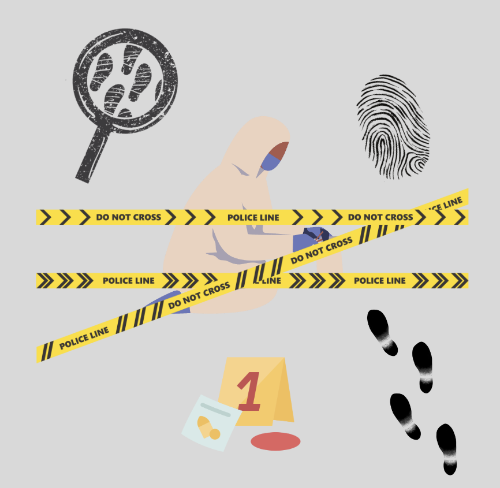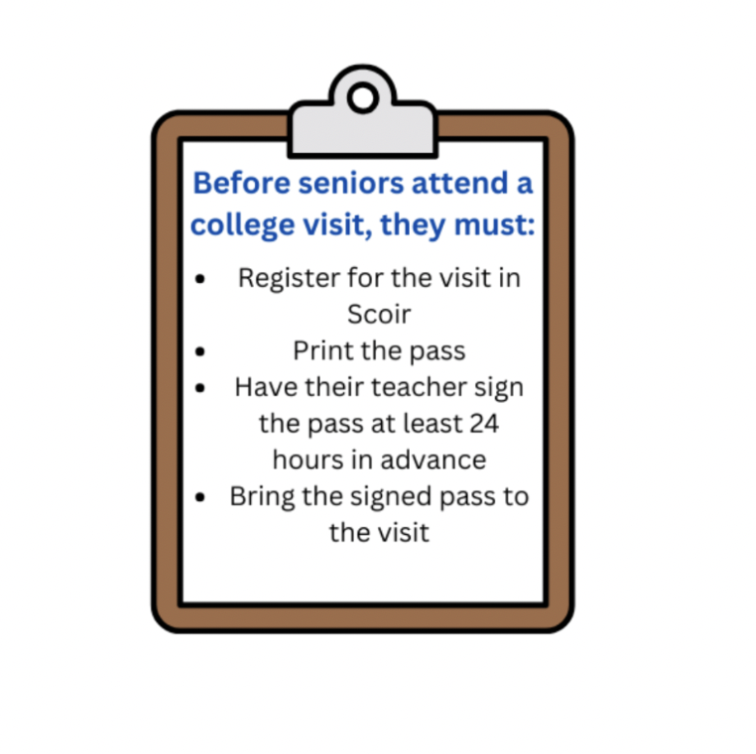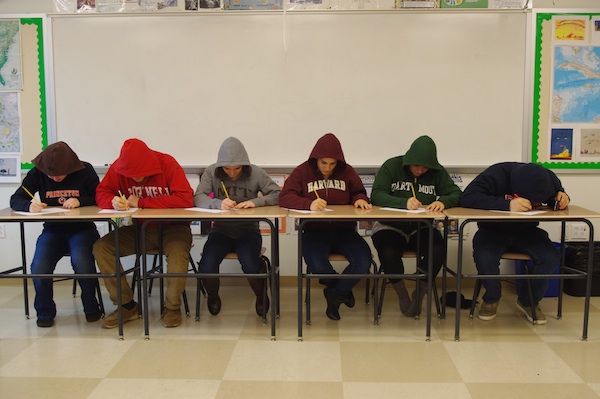Teachers prevent online cheating by changing assessments
It can always be a challenge to ensure students uphold the honor code as they take tests. This year, as half of the student body is working online at any given time, it has become increasingly difficult for teachers to manage cheating.
When students take tests from home, it is pretty easy to look off-screen at notes in a number of ways. To make things fair for all learners, many teachers have begun to accept this and have made most of their tests open-book.
“I have made all assessments open notes, and the only thing I can really do is limit the time they have, […] so that you don’t have time to look things up,” science teacher Dominick Messina said.
Messina has been trying to administer all of his tests online. He will post the test on Schoology, and then students will write down their answers on a separate piece of paper, which they will turn in after 50 minutes.
With limited time, it is imperative that students have studied thoroughly and mastered the material. Otherwise, they will take too long to look up answers and not finish the test on time.
Social studies teacher Carol Kaye finds that if students are disciplined and get the work done in advance, they should be able to perform well on these tests.
“You have to do the homework and have good notes,” Kaye said.
Due to the availability of notes during tests, teachers are finding they have to ask deeper questions. Ann Didelot, who teaches geometry, precalculus and AP Statistics has altered her math problems in ways to encourage more critical thinking.
“Questions have to be asked in ways that students really have to understand the concepts–it’s not memorization,” Didelot said. “It’s not things that can be easily looked up, they have to be very thoughtful questions.”
Students working online are also more easily able to converse with other kids about answers to problems. Texting or calling is simple to do off-screen and out of view of the teacher while on Zoom.
“If a test is timed, and unfortunately a student feels they need to cheat by reaching out to another student,” Didelot said, “they are really infringing on that other student’s time to check their work and to make sure they have the answers correct.”
Ultimately, teachers know that the best way to prevent cheating is to ensure that students know and understand the material. Though it is often more difficult for students to learn online, teachers have been working hard in class and during flex-time to help students.
“Between open notes and teachers’ availability to be meeting during flex-time, if students are feeling the need to cheat, it means they really haven’t prepared very well,” Didelot said.
It is necessary to have a sense of trust between students and teachers. However, at times, the old rules apply and students are required to take a standard test with no notes or collaboration. During these circumstances, it has become increasingly difficult to ensure that students are respecting that trust.
“I trust my students,” Kaye said, “but if there’s a word that the students at home are using their notes when they’re not supposed to, the kids in school might get upset. There’s no way for me to police that.”

Editor-in-Chief Lucy Dockter ’23 spends time playing the cello, flying planes and managing her staff in Inklings. Dockter first gained interest in journalism...











































![[Jan. 2017 Features] Cheating Academic integrity lost. Consquences of an act punishable by failing goes unenforced.](https://www.inklingsnews.com/wp-content/uploads/2017/02/Screen-Shot-2017-02-27-at-12.47.24-PM.png)





